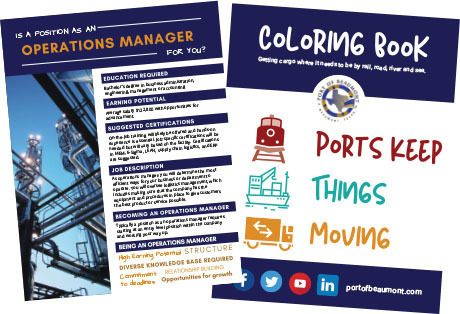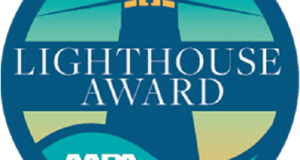

The critical role ports play in our nation’s transportation systems and economic health has been amply demonstrated over the past two years with the highly publicized supply chain ‘snarls.’ It is claimed a crisis should not be wasted, and AAPA is working hard to make sure the value of our nation’s ports is, now, even better appreciated. That recognition is also needed at the local level to facilitate recruitment into both the blue collar and managerial workforce, where the rolls have been diminished by COVID-19 and the broader demographic shift with baby boomer retirements.
Two questions seem timely: How can we attract workers into entry level positions in ports, marine terminals and the broader maritime sector? How can we better prepare working professionals to grow into roles of future port and marine terminal industry leaders?
Here in Southeast Texas, the Waterways Advisory Council (SETWAC), which represents business, industry and public agencies with a stake in the safe and efficient operations of the Sabine-Neches waterway (SNWW), has been focusing on building awareness of the good, well-paying job opportunities in the port, terminal and marine transportation sectors. Educational pathways have been identified connecting K-12 school districts and community colleges with port authorities, terminal operators other maritime interests in a collaborative effort that to-date has resulted in:
- Educational resources including a maritime coloring book for pre-school through third-graders; flow charts to show maritime career options and the associated levels of education needed to pursue them; one-page overviews of high-demand positions in maritime and support industries; and, the Southeast Texas Transportation Week, which will engage stakeholders and the general public for a week-long celebration of all things freight-transportation related.
- Adoption of a regional maritime pathway through the Texas Education Agency. As a result of the pathway being offered, the Beaumont Independent School District created a maritime program offered to high school juniors and seniors that bestows several maritime relevant certifications.
The information and resources compiled by the SETWAC subcommittee have been distributed statewide and nationally to AAPA, and other organizations interested in using the information as a template for their own efforts.

Advanced Education for Professionals
The educational pathway to port industry workforce development peaks with advanced education. The knowledge and skills our industry’s future leaders will need exceeds that required of previous generations. Practical knowledge augmented by a theoretical foundation and analytical acumen are required. Moreover, educational systems must be tailored to the ways that our future leaders learn, that is, increasingly through digital platforms.
The Master of Science in port and terminal management degree offered by Lamar University through its Center for Port Management seeks to help fill the need for advanced education in our industry. A Seaports article ran soon after its approval by the State of Texas academic authorities in 2017 (https://bit.ly/AAPA_LAMAR). This educational platform is fully online, allowing access not only to students – working professionals – throughout the United States and beyond, but also industry experts who teach fully half the curriculum (see lamar.edu/portmanagement).
The MOU between Lamar and AAPA, originally entered in 2017, was renewed in March, demonstrating the continued interest of the public port industry in port-centric advanced education. Dr. Noel Hacegaba, deputy executive director, Port of Long Beach, and chair of AAPA’s Professional Development Board, stated, “Lamar University’s Center for Port Management fulfills our industry’s long-standing dream of having an academic venue to gain both the theoretical and practical knowledge necessary to successfully prepare the next generation of port leaders.”
AAPA President and CEO Chris Connor added, “Lamar University’s Center and its singular advanced degree in port and terminal management is what port professionals of the future need today.”
Lamar’s master’s degree in port and terminal management reveals the special skills and knowledge that our profession requires. On-the-job training and continuing education programs offered by AAPA and other trade associations now have a pathway to higher education dedicated to port and terminal management. And the pathway that begins in early education ultimately leading to a good job in the ports and maritime industries can also open the door to positions of industry leadership in both public and private sectors.
 AAPA Seaports
AAPA Seaports


